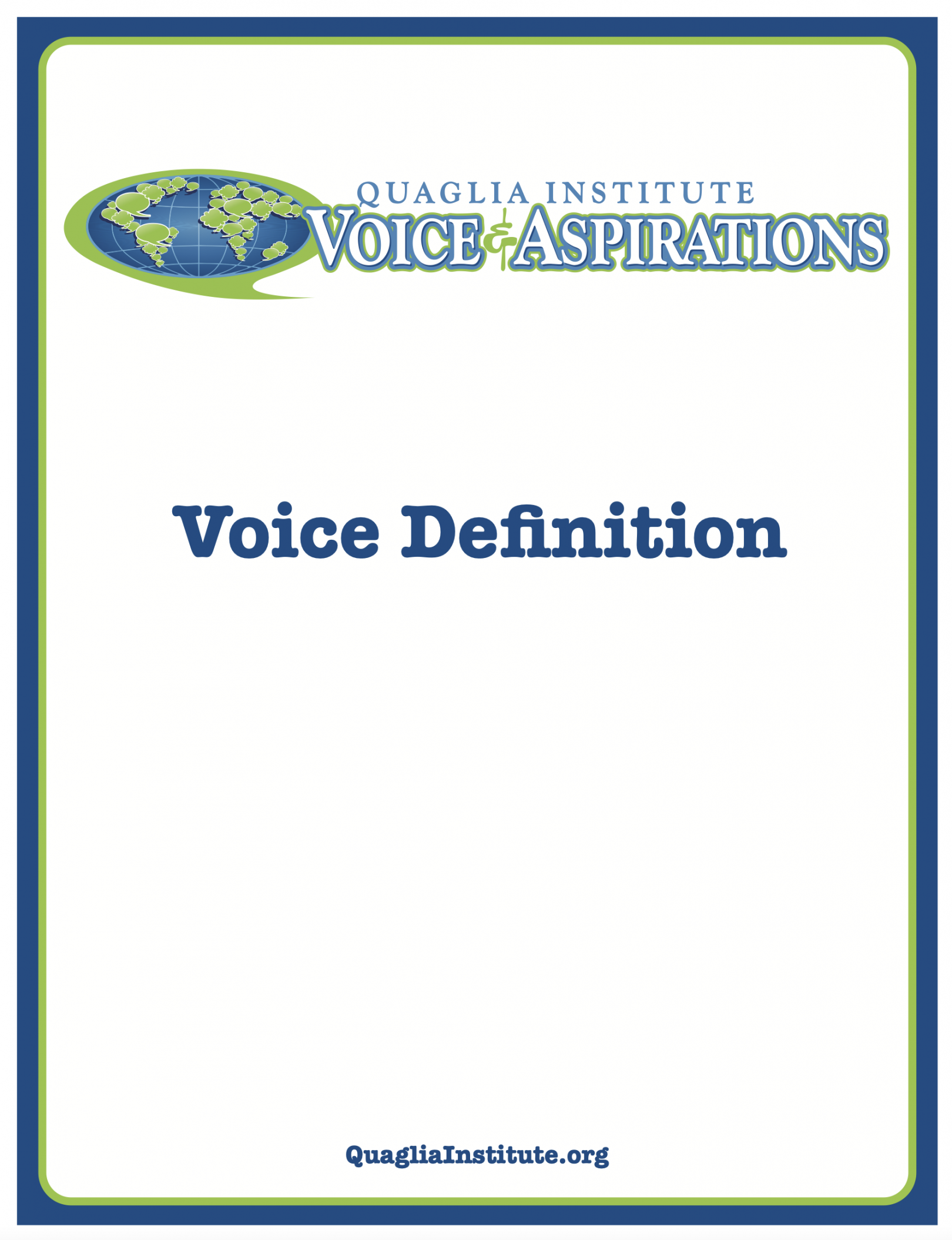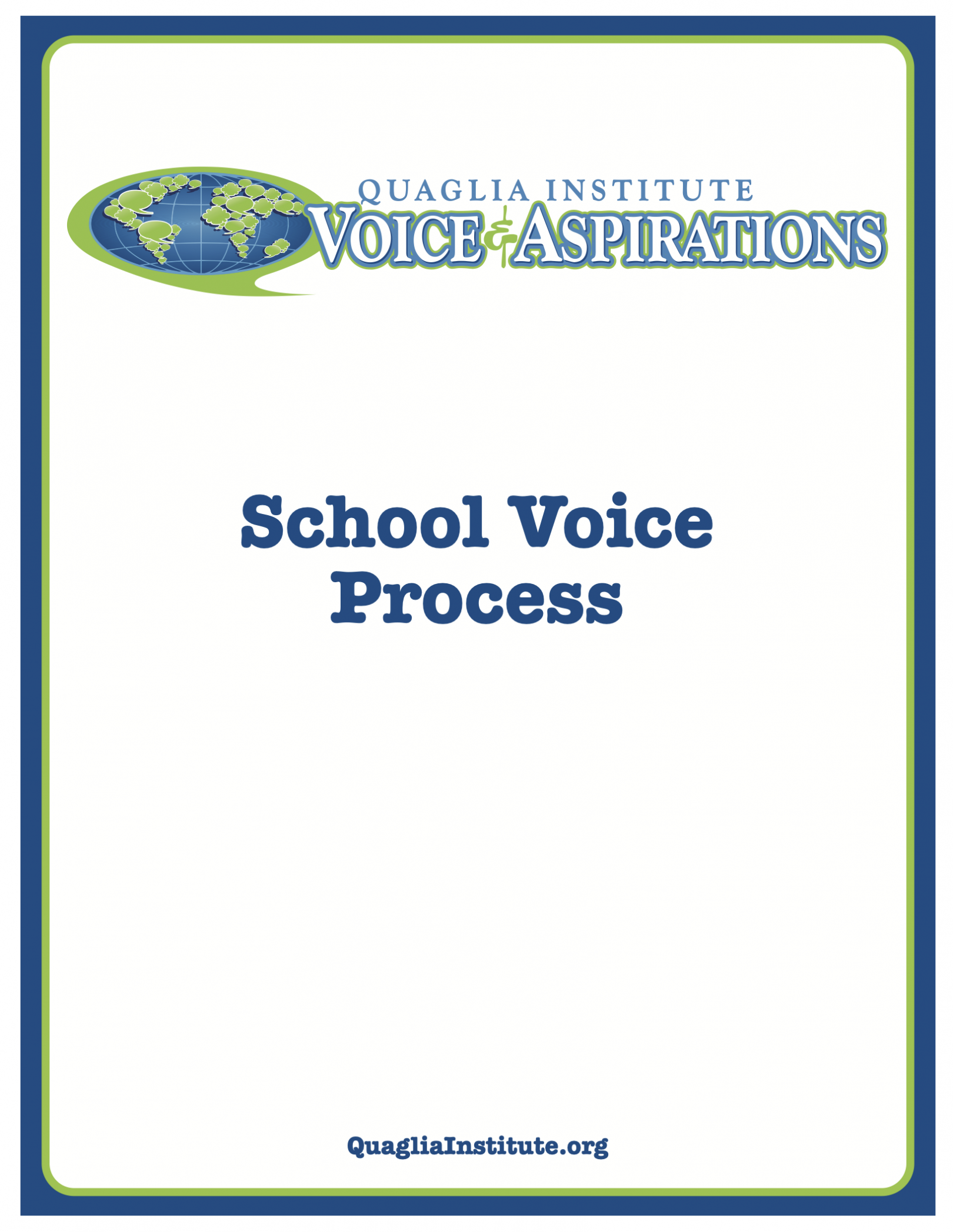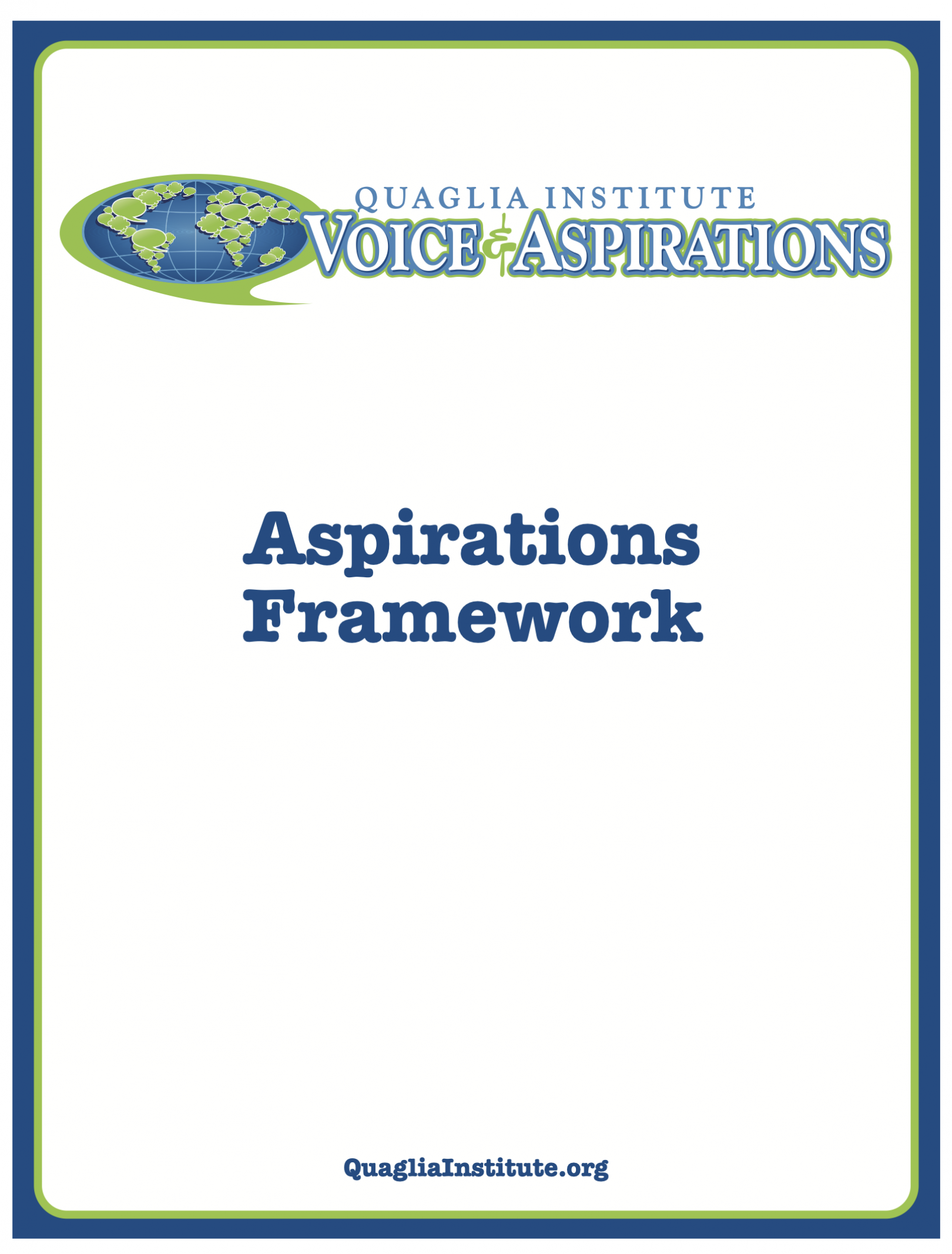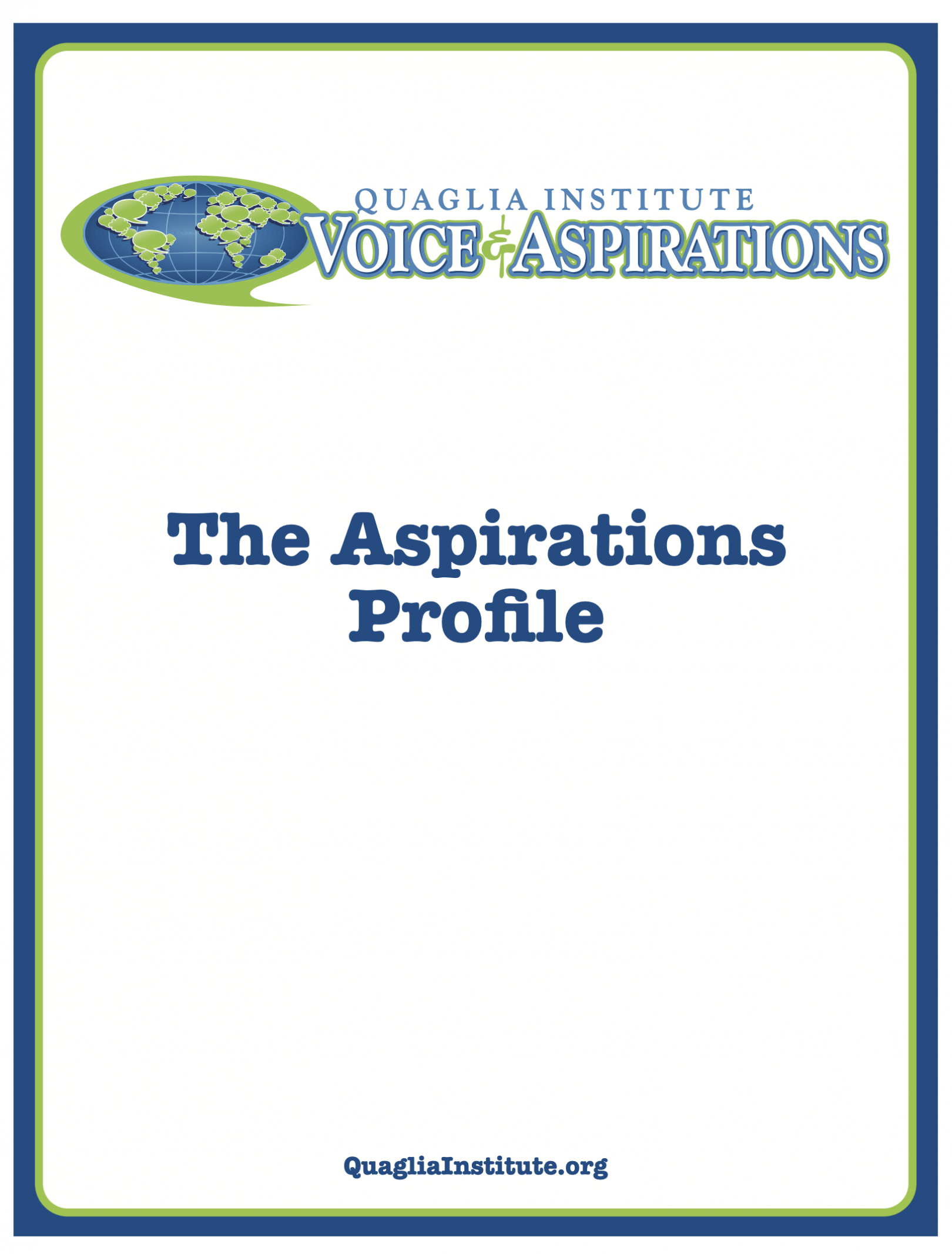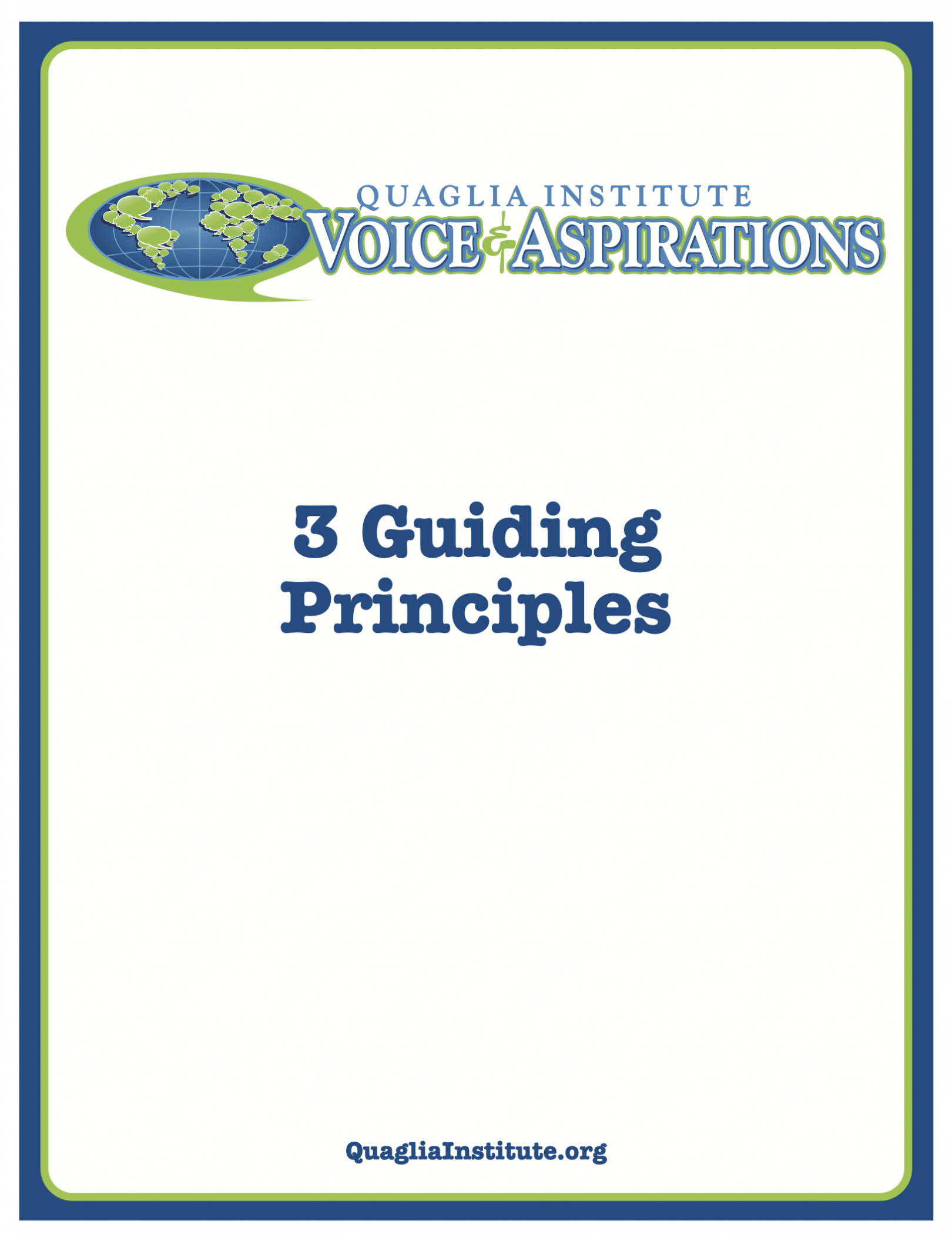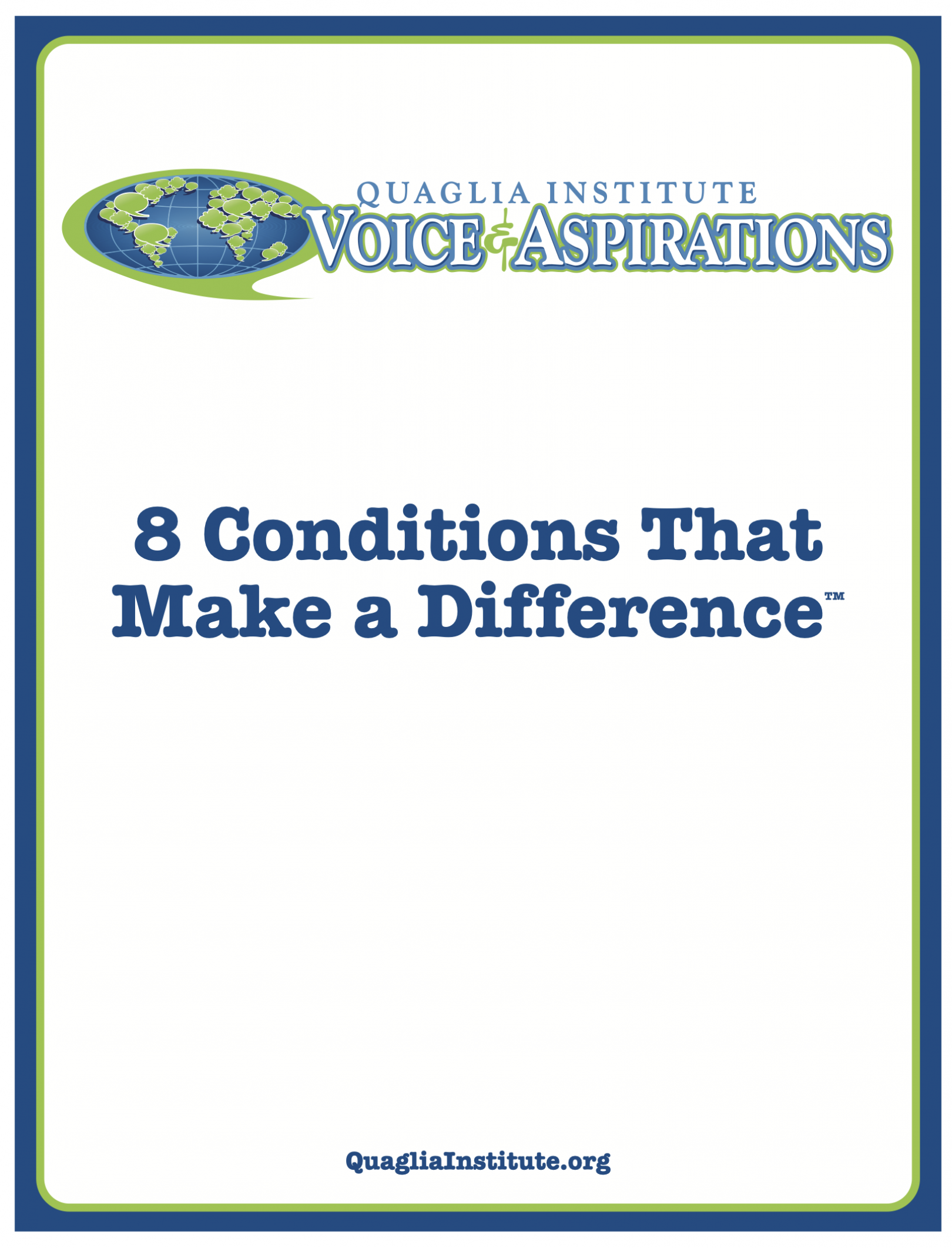Voice & Aspirations Briefs
This series of papers offers basic overviews of the key components of our Aspirations Framework.
Voice Definition Brief
It is crucial to have a clear definition of voice that is equally applicable to all voices in school. There should not be one definition for student voice, a different definition for teacher voice, and so on. Voice is voice, and it is critical that we have a common understanding of what it means, the expectations that encompass using one's voice, and how the power of voice can be operationalized for the good of the whole.
School Voice Process
There are three major components to the School Voice Process: Listen, Learn, and Lead. Effectively utilizing one's voice is not just about leading, but about first listening and being willing to learn from others.
Aspirations Framework
The Aspirations Framework outlines a way to recognize and develop aspirations, while trusting in the professional judgment of educators and insights of students to decide what concrete actions are best for their school. This paper outlines the research-based set of principles and conditions that define this framework, yet does not provide a prescription for implementation.
Aspirations Profile Brief
We define Aspirations as the ability to dream and set goals for the future while being inspired in the present to reach those dreams - both dreaming and doing. These two aspects (dreaming and doing) provide us with a visual quadrant, the Aspirations Profile, presented in this paper.
3 Guiding Principles
This paper outlines the 3 Guiding Principles, which provide educators with a practical model that can be used to guide the development of educational experiences, from the individual classroom to the entire school building. If school curriculum, activities, and lessons, professional development, goal setting, and evaluation support each of the Guiding Principles, teachers and students will be more likely to achieve academic, personal, and social success.
8 Conditions That Make a Difference
The 8 Conditions That Make a Difference help all members of the school community implement and live out the 3 Guiding Principles. Based on four decades of research, the 8 Conditions are outlined in this paper.

